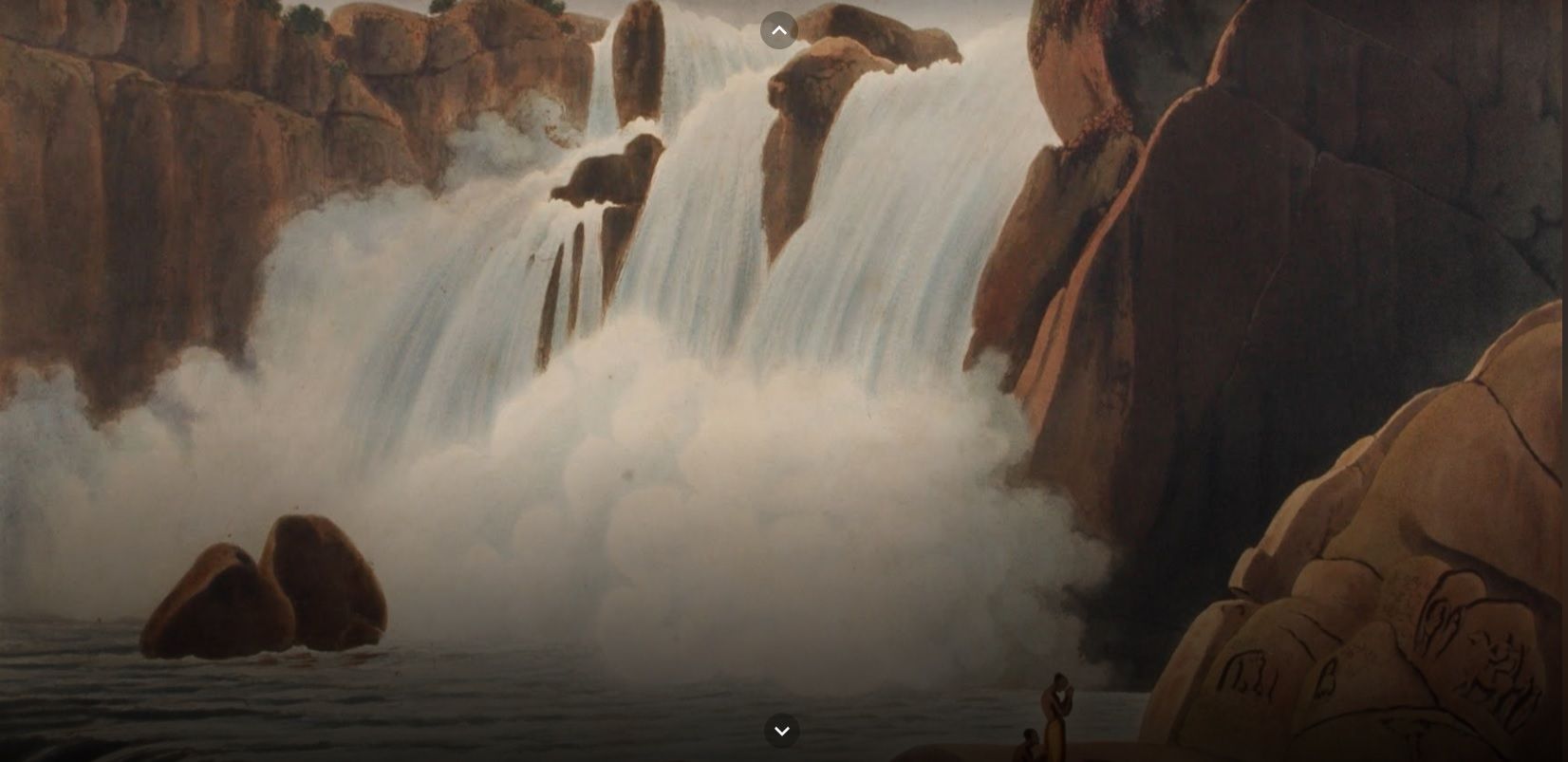meditation 92

Be aware of the beginning
and ending
of sneezing,
or when in extreme
fright
or grief,
or at heaving
a deep sigh,
or when running
from a battlefield,

or at a moment
of great amazement
or at the onslaught
and appeasement
of real hunger.
The state of Divinity
is there.
Note:
This is Verse 118.

John Muir, upon getting stuck while climbing Mount Ritter: "After gaining a point about halfway to the top, I was suddenly brought to a dead stop, with arms outspread, clinging to the face of the rock, unable to move hand or foot either up or down. My doom appeared fixed. I must fall." How Not to Climb a Mountain: John Muir Gets Stuck. Sierra: The magazine of the Sierra Club, May – June, 2017. Illustration by Koren Shadmi.
For gahvare (locative of गह्वर ), both Singh and Lakshmanjoo–Muju translate as follows: in a deep sigh. Singh's commentary expands luminously, explaining as follows (p. 106):
Whenever the ordinary, normal consciousness receives a sudden bolt or shock, it is thrown back to its inmost depth and comes in contact with spanda, the pulsation of the deepest consciousness, the source of being.
Turning to the types of impasses we sometimes find ourselves in when climbing mountains, in The Manual of Self Realization, Swamiji envisions gahvara as being mentally stuck, painted into a corner: an impasse somewhat like an aporia – and equally productive of a state of no-mind (pp. 220 – 221):
Gahvara means, for instance, you are climbing [and then] you descend, [but] when you descend, you don't find the way. You have lost the way of how to descend and there is no way to go down. Either you will fall and roll down and you will die . . . and there is no hope of your reaching down. That is gahvara. That is a place where there is gahvara. Gahvara is a very difficult pathway to tread on. At that moment, what is the position of your mind? See the position of your mind at that moment. What to do? You can't move now – gahvare.

Swamiji and Panditji's original reads as follows:
Verse 118
Be aware at the beginning and ending of sneezing, or when in extreme fright or grief, or at heaving a deep sigh, or when running from a battle field, or at the moment of great amazement or at the onslaught and appeasement or (real) hunger. The state of Divinity is there.
